An African School for the Deaf
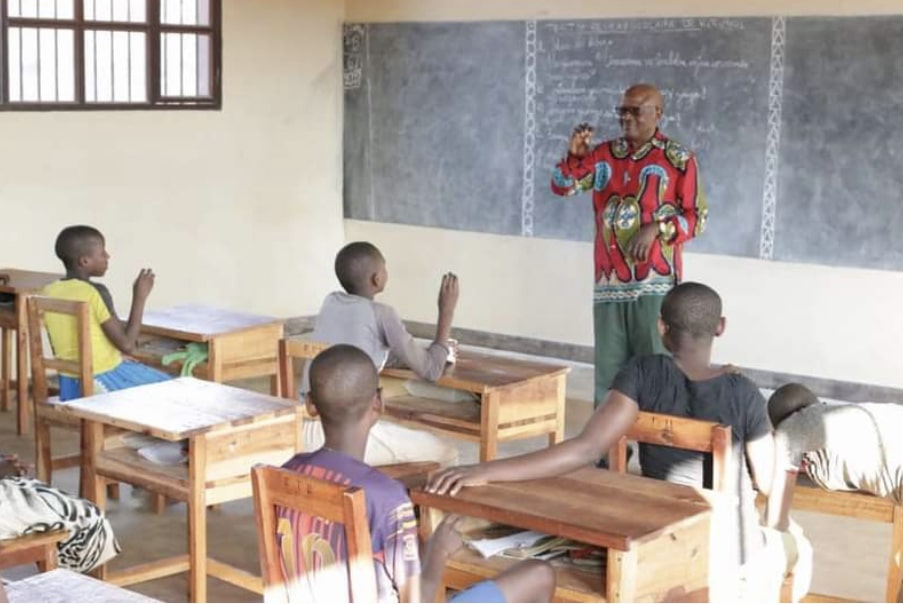
Photo credited to Gisuru School of the Deaf
Posted July 13, 2023
My sandals send up puffs of red dust with each step as my husband and I follow my brother-in-law Danny through the crowd milling around the courtyard of Gisuru School of the Deaf, where we’ve been invited to attend a wedding reception. I try to adjust my clumsily-tied headscarf, aware that I look funny next to the African women whose elaborately-knotted scarves match the bright patterns of their skirts.
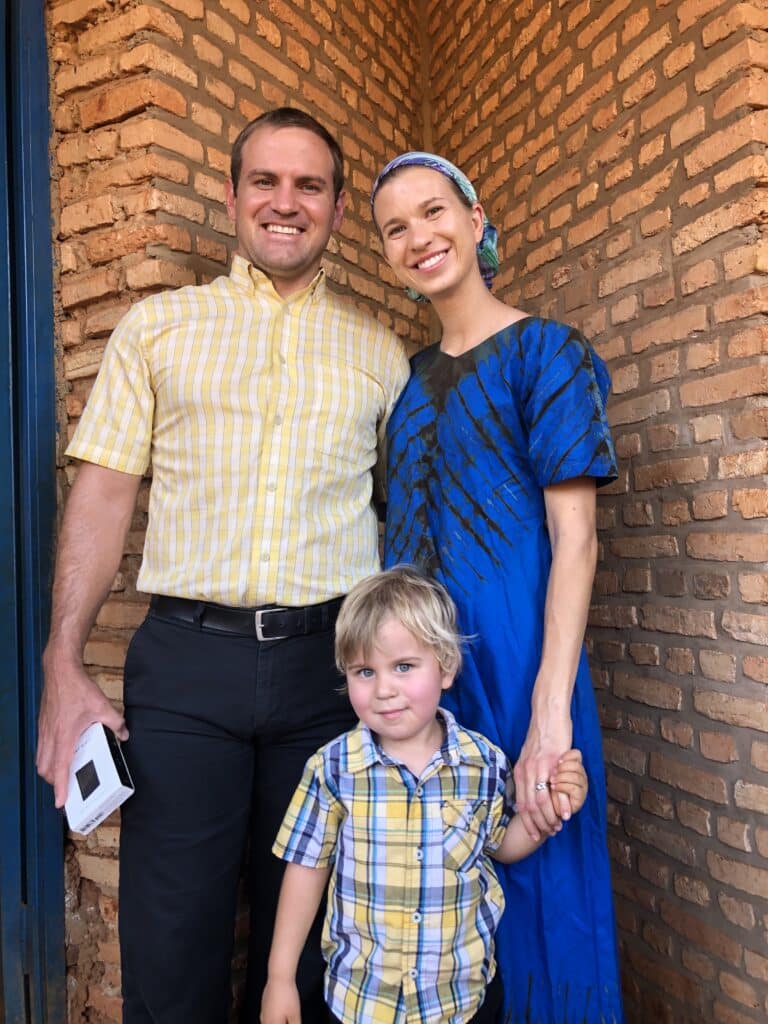
The author’s family at a wedding in Gisuru. Photo credit Danny Johnson.
Danny pauses to greet a friend in Kirundi, the melodic language of Burundi. He waves me over and points to three teens perched on a low mudbrick wall. “These are three of the students at the Deaf school,” he tells me. I grin at the trio—finally, people I can chat with! My Kirundi vocabulary consists of two words (hello and thank you), but my sign language skills are decent.
I greet them in their dialect—placing the thumb of my open right hand on my chest and saluting outward: Are you fine? They respond the same way. I’m fine! They seem as excited as I am to have a new person to converse with. We’re all in the same boat at this wedding—none of us can communicate with the Kirundi speakers around us.
Fortunately, these kids are usually surrounded with a community of fellow students and staff members who can sign. This is not the case for most Deaf people in Burundi, who make up a disproportionately high percentage of Burundians.
There are only two schools exclusively for the Deaf in Burundi (the other, also founded by my husband’s family, is five hours away). Without the chance to go to school and learn sign language, these kids would never have the chance to learn any language at all, a situation that direly impacts Deaf individuals in a country that struggles with poverty.
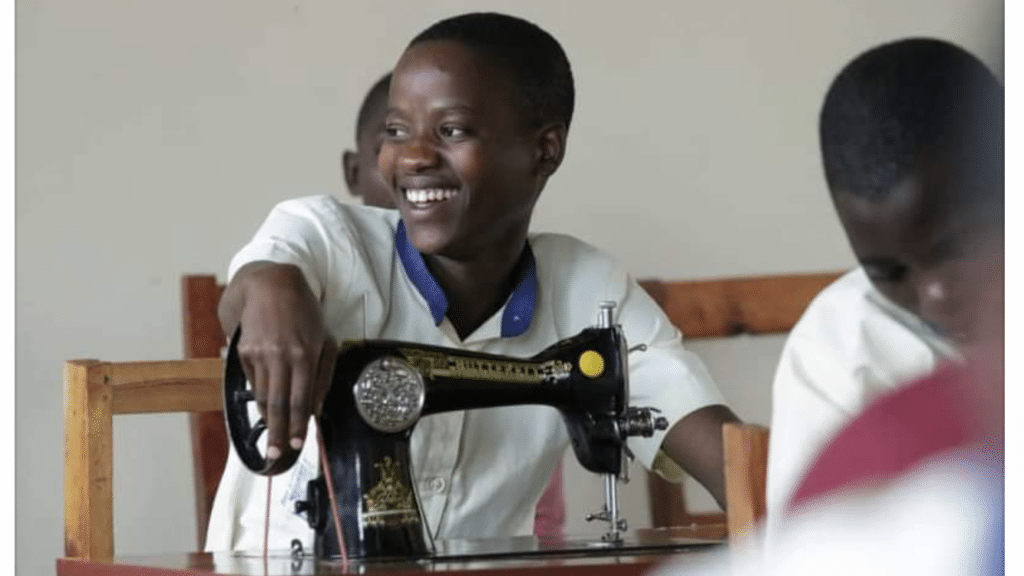
The three teens share their names and name signs with me and I offer mine to them. They tell me about their ages and their school schedule. The girl in the group is still receiving a traditional education, but the two boys are older and have added the carpentry trade program to their studies—they’re proud to have helped build the furniture around campus.
At Gisuru School for the Deaf, students learn the required academic subjects for Burundian schools in addition to French Sign Language, Kirundi, Swahili, French, and English. Even without being able to hear, these three kids know five languages! They also have the advantage of the best education in this region of Burundi. This year, the school scored higher on all subjects than any other school in the area. These kids are smart and capable. And now they’re finally getting their chance to prove it.
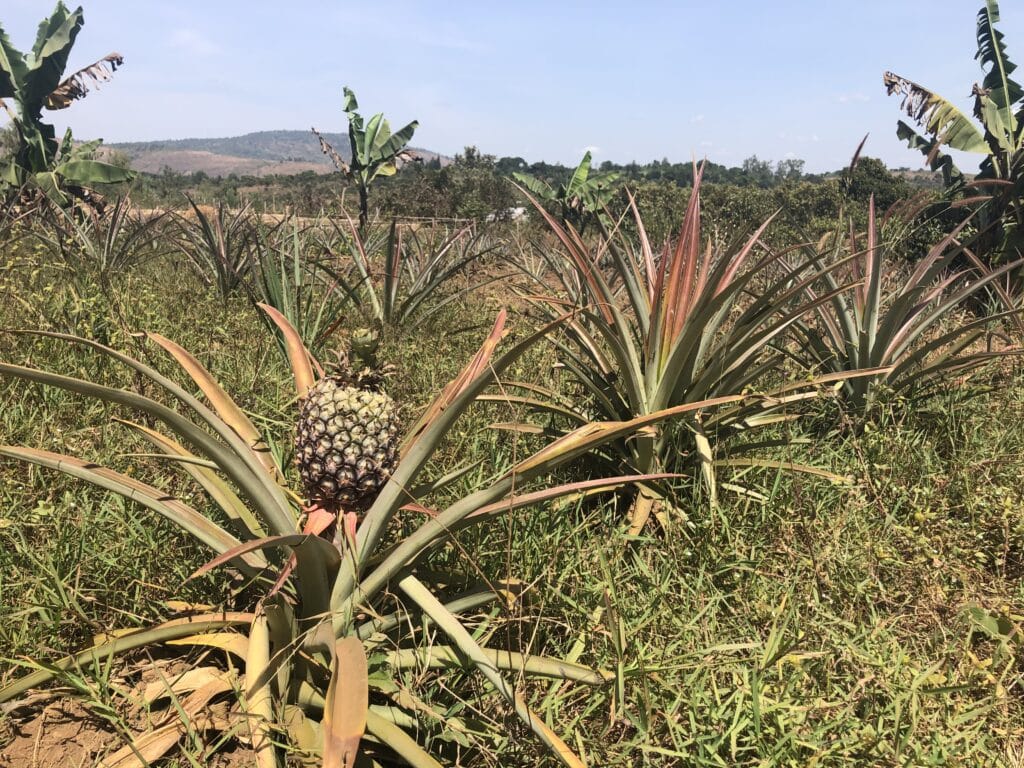
Burundian life skills are also emphasized here. Students work in the school’s large garden and learn to cook in the open-air kitchen, where pots the size of small bathtubs cook beans and ugali, a cassava root porridge, over open flames.
One of the boys takes a closer look at me and recognition lights in his eyes. I know who she is, he signs to his friends. This is Frank’s sponsor. I’m surprised he’s recognized me from the photo I sent to Frank, a younger boy whose education I pay for.
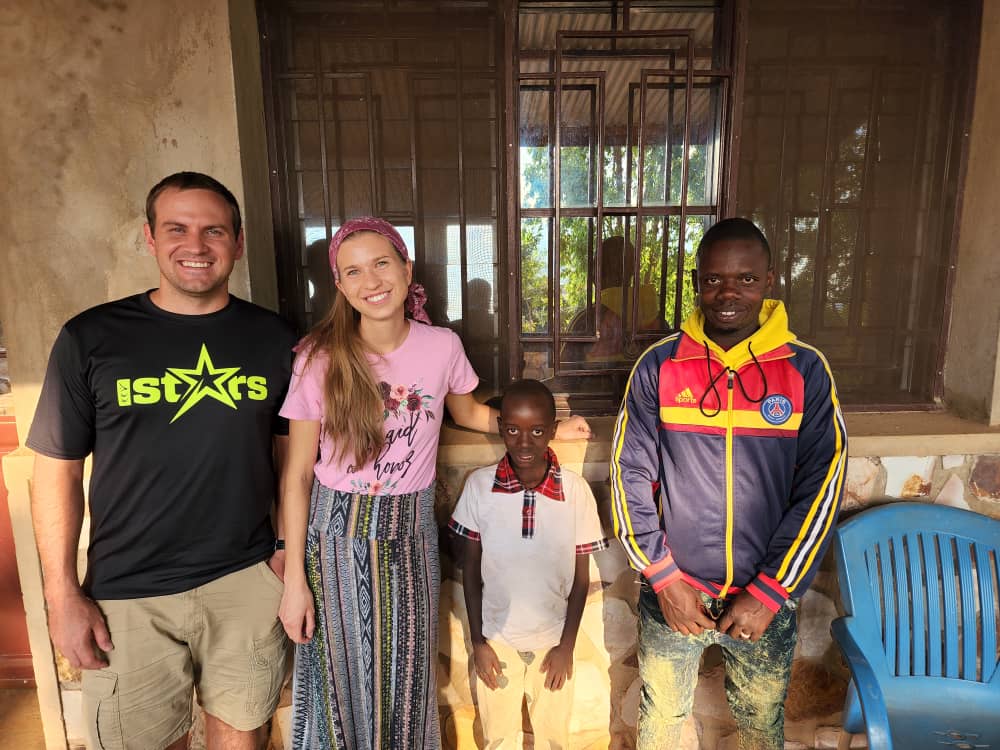
Each student at Gisuru School for the Deaf is sponsored by someone overseas, since their parents, mostly sustenance farmers, can’t afford the few dollars a day it costs to feed, house, and educate their children. I pay $30 per month for Frank’s tuition, room, and board. This amount would barely cover the cost of a dinner out in the U.S., so I was surprised to learn that it’s a month’s wages for a Burundian day laborer.
I affirm that I’m Frank’s sponsor. We’ve exchanged letters for five years now, but I’ve never met him in person. You’ll have to tell him I said hi, I sign. They grin and agree to pass on my message to the 10-year-old when school starts up again in September.
Kirundi words blare over a loudspeaker and Danny translates for me—we’re being called inside for the wedding reception. The reception is being held in the Deaf school’s cafeteria, which often acts as an event center for the community. I say goodbye to my new friends and file in alongside women in ankle-length skirts and men in patterned dress shirts.
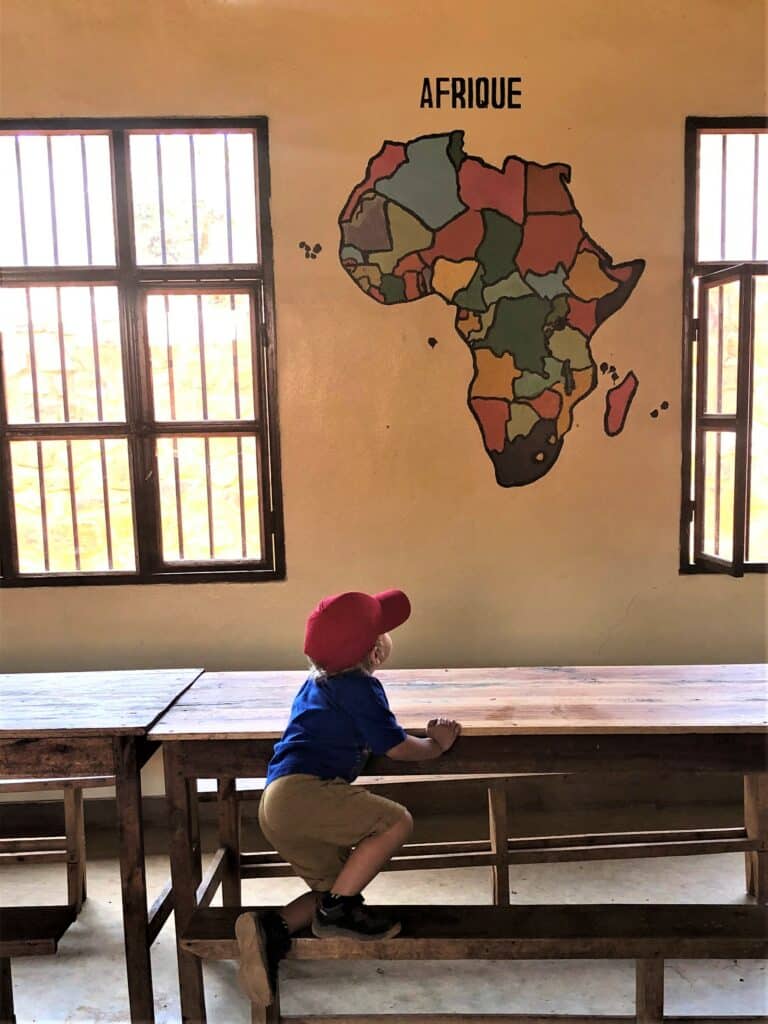
Author’s son in the cafeteria of Gisuru School for the Deaf. Photo credit Breana Johnson
Danny gave my family a tour of the school yesterday, so I got to see inside the classrooms, dorms, and kitchen. But the cafeteria is my favorite. The wall is painted with murals of maps and flags—a casual way for the students to learn the geography of their home continent in the visual format Deaf students absorb best. Flags of East African nations decorate one wall while a huge map of Burundi and its provinces fill another. Danny tells me students enjoy pointing out their home villages to their friends.
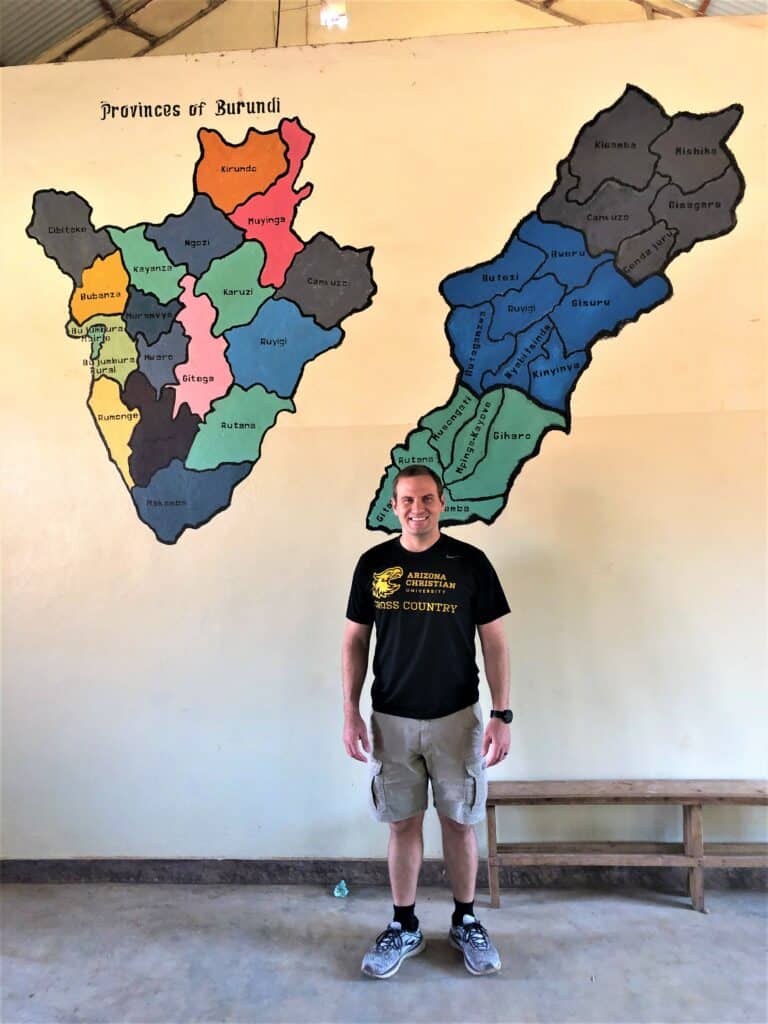
Mural in cafeteria of Gisuru School for the Deaf. Photo credit Breana Johnson.
When the wedding reception ends long after sunset, I head to my family’s guesthouse toting a bottle of orange Fanta, the beverage of choice at Burundian weddings. The Southern Hemisphere sky sparkles with unfamiliar constellations and music from the reception floats through the still air. I stand on the balcony of the guest house and gaze down at the generator-powered twinkle lights of the wedding reception, the only indication of humanity in the inky darkness of a community without electricity.
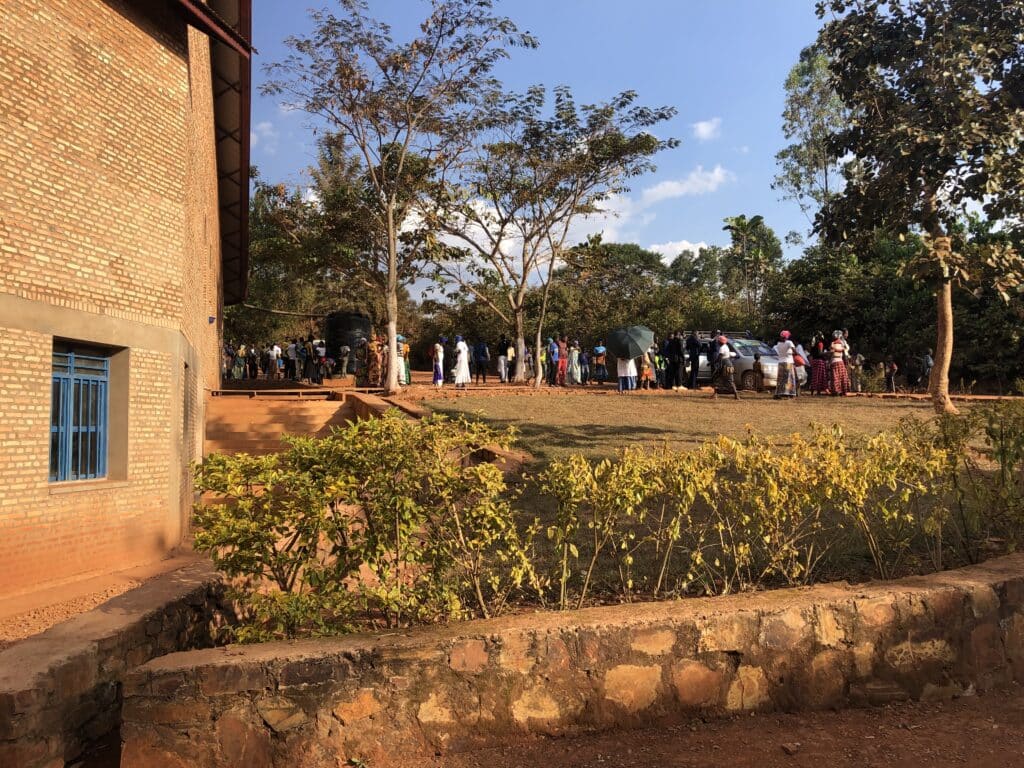
Tears fill my eyes. After watching the construction of the Deaf school on Danny’s Facebook page, five years of receiving precious photos and letters from Frank, and months of planning this trip deep into the heart of Africa, I can’t believe I’m finally here.
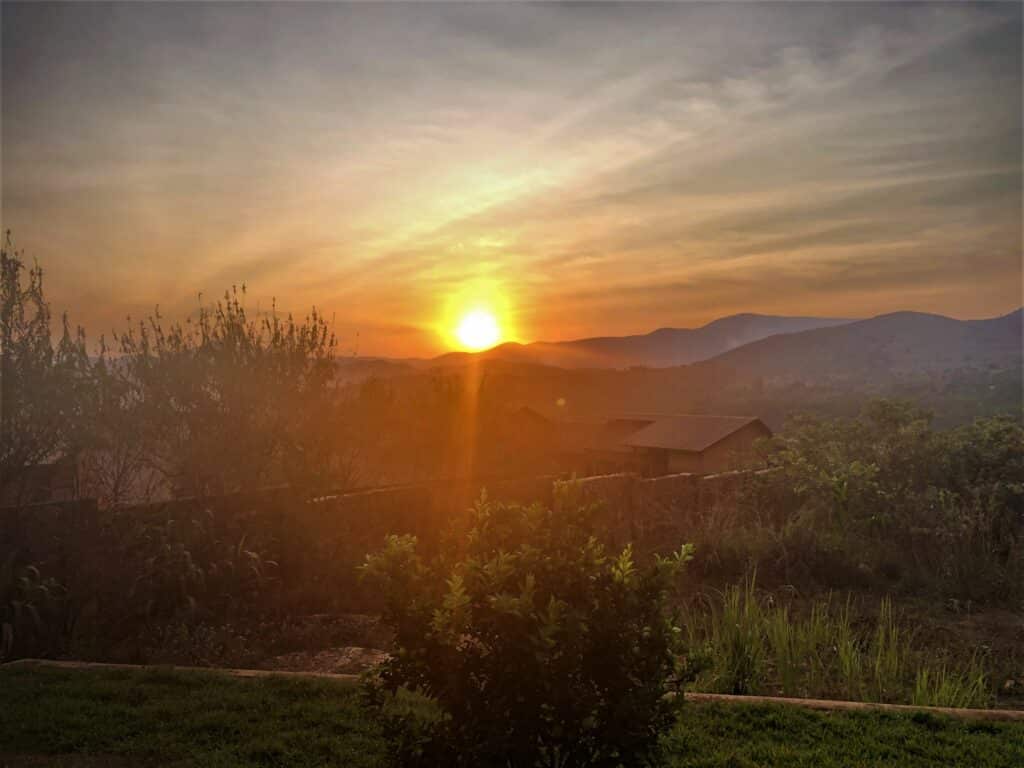
Now I can see that my part in supporting these students is not just a minor item in my budget and a photo of a faraway child on my fridge. It’s the potential to impact the trajectory of a life and a human connection that transcends language and culture. What a privilege it is to be able to reach across oceans to find a place where I’m invited to belong, if only for a moment in time, and to play a role in the community even when I return home.
Click to learn about sponsoring a child at Gisuru School for the Deaf
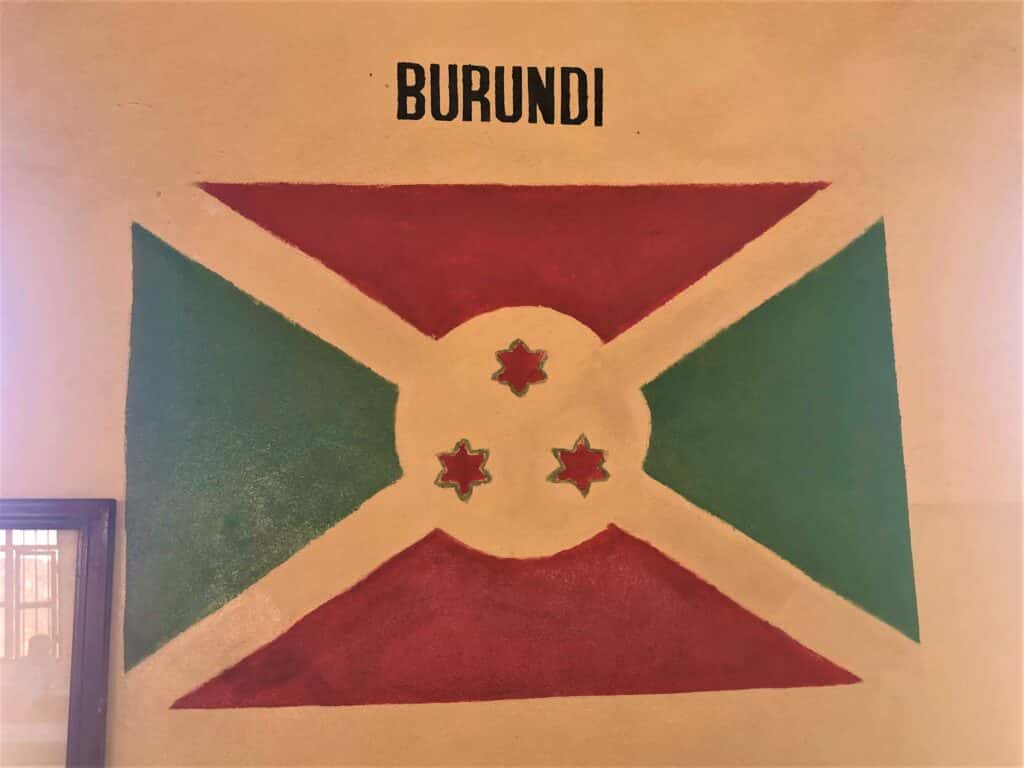
Book Your Stay in Burundi
Search, compare and book hotels & rentals at the best prices that are sourced from major booking sites including Booking.com, Hotels.com, Expedia, Vrbo, and more. You can move the map to search for accommodations in other areas and also use the filter to find restaurants, purchase tickets for tours and attractions, and locate interesting points of interest!
Join the community!
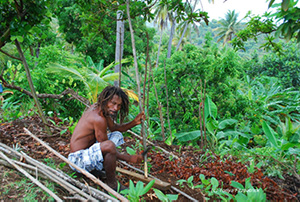
Join our community to receive special updates (we keep your private info locked.)




